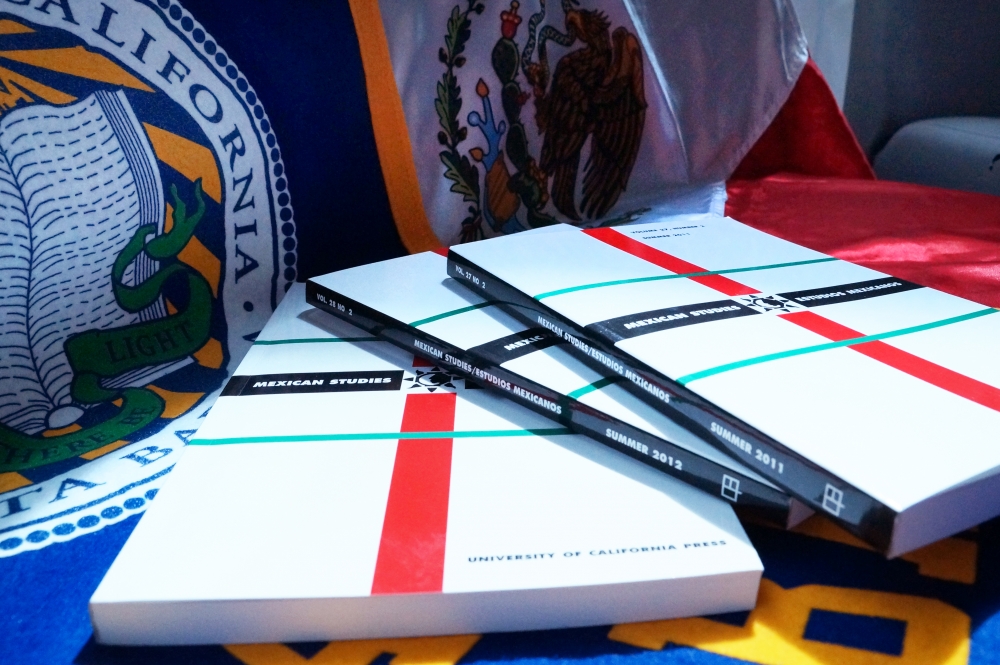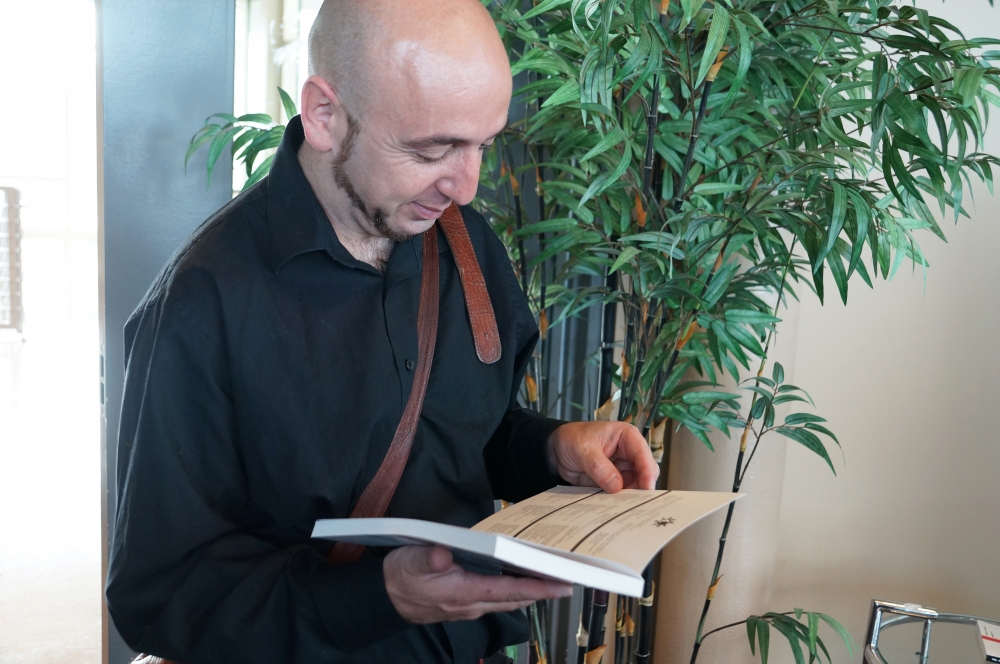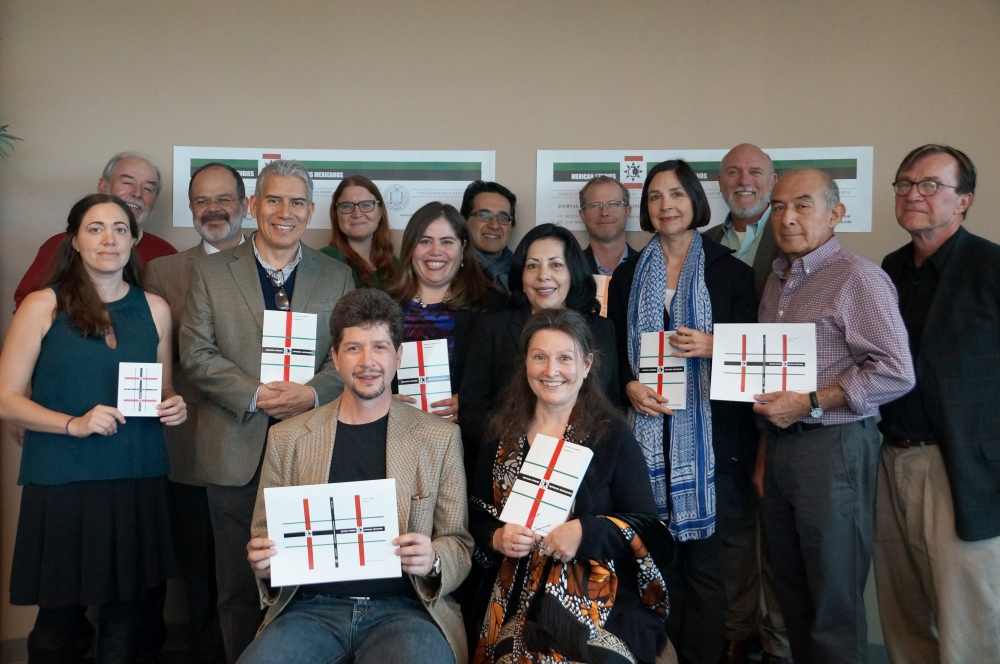Mexican Studies/Estudios Mexicanos
Three decades ago, UC Irvine history professor Jaime Rodríguez founded a scholarly journal aimed at spotlighting important research in the area of Mexican studies. After 30 years on the Irvine campus with Rodríguez at the helm, the journal, Mexican Studies/Estudios Mexicanos, has moved north to UC Santa Barbara and creative and performing arts professor Ruth Hellier-Tinoco is in the driver’s seat.
The current issue, the first produced under the direction of Hellier-Tinoco, is now available.
Published by UC Press, the journal is a collaboration of the University of California, the UC Institute for Mexico and the United States (UC MEXUS) and la Universidad Nacional Autónoma de México (UNAM). It is overseen by two editorial boards — one composed of faculty representatives from each of the 10 UC campuses and another made up of colleagues at UNAM, with associate editors from each institution. Serving as de facto members of both boards are UC President Janet Napolitano and UNAM Rector José Narro Robles.
“It’s a very prestigious journal, and a very interesting setup because it’s binational, bilingual and bi-institutional,” said Hellier-Tinoco. “It has tended to be interdisciplinary and to follow a lot of the political changes in Mexico, and it’s also been heavily into historical contexts. It has varied from issue to issue and volume to volume and has evolved over the years.”
Contributors to the journal hail from universities and institutions around the world, and subscribers include libraries throughout the U.S., Europe, the Americas, Asia and Australasia.
The editorial office at UCSB operates with a small staff — senior editorial manager, Debra Herrick and assistant editorial manager Claire E. Ihlendorf Burke, both with doctorates from UCSB in Mexican studies. Hellier-Tinoco acknowledged UCSB Executive Vice Chancellor David Marshall for his great vision in agreeing to commit funds for the editorial office. “It is my hope that funding will continue for many years to come,” she said, adding that the UC MEXUS director Exequiel Ezcurra is firmly committed to supporting the journal as it moves into this new era.
“In a related matter, it’s encouraging that Janet Napolitano launched the UC-Mexico Initiative, which is a long-term strategic initiative to enable UC to collaborate with Mexico in many different ways as an ongoing process,” added Hellier-Tinoco. “The fact that she recognized the need for this — the importance of it — hopefully means that funding for the journal will be seen as integral to enabling the UC system to be really connected with Mexico.
“It allows our current undergraduates to be the future generation who will not see Mexico as a separate country but will see all these connections and collaborations in so many ways,” she continued. “As with all scholarship in any field, we are undertaking research to enable us as human beings to understand our world, whether it’s understanding a moment in history that happened 400 years ago or 500 years ago or 1,000 years ago or whether it’s understanding an issue that’s happening right now.”
All of which, Hellier-Tinoco noted, is the business and context of universities.
Currently, the journal publishes twice annually, though this will increase to three per year in 2016, with the addition of a multimedia component in the future. It is the only scholarly publication of its kind specific to the field of Mexican studies. Other journals take a broader look at Latin America or at the Americas in general, but none has the interdisciplinary and multidisciplinary focus on Mexico. “And that’s why it’s so crucial, particularly for UC,” Hellier-Tinoco said. “It’s also crucial for our student body.”
For Hellier-Tinoco to assume executive editorship of Mexican Studies/Estudios Mexicanos is something of a homecoming. “I first came across the journal in 1994 when I was starting my doctoral research,” she said. An actress prior to becoming an academic, Hellier-Tinoco created a theater piece titled “Aztec.”
“And we were reading many, many historical documents about the moments of coming together of Cortés and Moctezuma,” she recalled. “I became fascinated by Mexican history and decided to undertake research for a Ph.D. So I went to live in the state of Michoacán in Mexico.”
But what brings the journal full circle for Hellier-Tinoco? Alan Knight. “Alan Knight is a very renowned scholar at the University of Oxford and a professor of Mexican history,” Hellier-Tinoco explained. “I was starting my research, which was looking at post-revolutionary era Mexico. He wrote an article titled ‘Peasants Into Patriots’ that was published in the journal. That’s when I first became aware of it.
“And just last week we asked Alan Knight if he would review one of the articles, and he agreed,” she continued. “So, for me, there’s a personal connection to the journal.”






